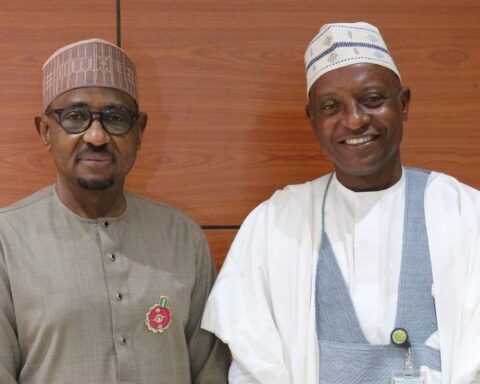Electricity distribution companies in Nigeria (DisCOS) have announced a collection of a total of N168.7 billion revenue in August, achieving a collection efficiency rate of 80.91%, according to a report released by the Nigeria Electricity Regulatory Commission (NERC).
According to the report, customers were billed a total of N208.5 billion for the month.
Ikeja DisCo led in revenue collection with N35.27 billion, reaching a billing efficiency of 104.01%. Eko DisCo followed, with a billing efficiency of 89.04% and revenue of N26.37 billion, while Abuja DisCo ranked third, collecting N26.96 billion at a billing efficiency of 80.63%. On the lower end, Jos DisCo reported the lowest collection efficiency among the companies, at 50.69%, with Yola and Kaduna DisCos following with efficiency rates of 52.06% and 57.16%, respectively. Their respective revenues were N1.97 billion for Yola, N5.23 billion for Jos, and N5.2 billion for Kaduna.
The report also detailed energy billing efficiency across the 11 electricity distribution companies. In total, they received 2,561.28 GWh of electricity and billed 2,110.53 GWh, reflecting an energy billing efficiency of 82.4%. Ibadan DisCo had the highest billing efficiency rate at 90.35%, billing 153 GWh out of 160 GWh received, followed by Eko and Yola DisCos with billing efficiency rates of 89.87% and 88.74%, respectively. Conversely, Enugu, Jos, and Kaduna DisCos recorded the lowest energy billing efficiencies, at 74.66%, 65.35%, and 62.31%.
The increase in revenue collection to N168.7 billion suggests improved liquidity within Nigeria’s power sector, reducing the reliance of DisCos on government bailouts and subsidies as collection efficiency approaches 90%.
With the recent removal of electricity subsidies for Band A customers, Minister of Power Adebayo Adelabu noted that the government saves around N1.4 trillion annually.
However, the sector continues to face challenges such as underinvestment, aging infrastructure, and financial constraints, limiting DisCos’ capacity to meet the rising demand for power. Insufficient funding hampers their ability to modernize networks, enhance metering, and minimize power losses, affecting service reliability and quality.
President Tinubu’s administration aims to address these persistent issues through a reform agenda that includes phasing out subsidies entirely and aligning tariffs with the actual costs of power generation and distribution. The reform plan also focuses on attracting private investment to enhance capacity and service delivery, with the ultimate goal of creating a sustainable electricity market that fosters competition, promotes efficiency, and provides a reliable power supply to consumers nationwide.



























